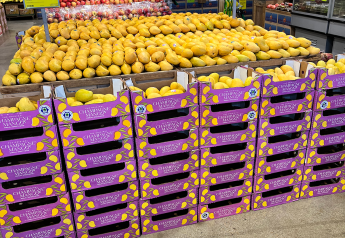Lawsuits May Complicate the Future of Glyphosate

Glyphosate is keeping several California courtrooms busy. It’s premature to start digging through your farm’s records to see how things were done in the pre-Roundup Ready days, but litigation could impact the future of glyphosate in farming operations.
Although there is a strong body of scientific evidence indicating glyphosate used in accordance with labeling requirements does not result in negative impacts for human health or the environment, the threat of litigation losses has already resulted in business decisions to pull back access to the herbicide.
Bayer Pulls Residential Sales
Plaintiffs’ attorneys have brought numerous class action lawsuits alleging glyphosate caused cancer, specifically, non-Hodgkins lymphoma. The plaintiffs allege Monsanto (later acquired by Bayer in 2018) failed to notify users the World Health Organization’s cancer research arm stated glyphosate is “probably carcinogenic to humans.”
Most of the plaintiffs in these cases have been residential users and groundskeepers who used the product for landscaping purposes. The first jury trials resulted in decisions for the plaintiffs accompanied by astronomical damages. Despite the body of evidence and EPA’s continued approval of glyphosate as a safe pesticide, Bayer decided to settle the litigation to manage its costs.
In June 2020, Bayer and the plaintiffs counsel announced a $10 billion settlement to resolve the claims of 125,000 plaintiffs. Of those plaintiffs, 95,000 accepted the terms of the settlement whereas 30,000 have chosen to continue to litigate the case. Although this settlement resolved much of the existing litigation, Bayer still faces exposure from future claims that have not been filed. This means as long as glyphosate is on the market, there will be a potential for new claims to continue to rise.
Bayer attempted to resolve this matter by offering $2 billion to resolve a future class action to compensate future claimants, a common practice in class action litigation. However, the federal judge overseeing the case rejected this settlement on the basis that it would limit the recovery of punitive damages for plaintiffs that were not yet parties in the case. Without the option to limit future losses, Bayer made the decision to remove glyphosate from its Roundup products marketed for residential use.
Science Versus Economics
Although residential applications of glyphosate account for a small fraction of the glyphosate used in the U.S., most of the plaintiffs in the class action cases were residential users and groundskeepers. Taking these products off the residential market helps to control financial losses.
Bayer has committed to continuing to sell glyphosate for agricultural purposes. However, it’s important to understand that even with science on their side, businesses are subject to the constraints of math.
Learn more on why Bayer is removing glyphosate from the U.S. residential lawn and garden marketplace.







